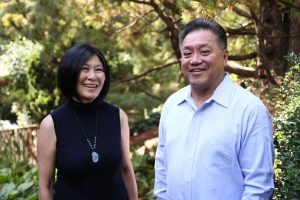A new $20m research centre for autism at the Massachusetts Institute of Technology (MIT) will try “far out” treatments in a bid to offer families hope.
MIT’s McGovern Institute for Brain Research will run the new centre. It has promised to attempt to make significant progress by looking at emerging technologies such as gene editing.
An initial donation of $20 million from couple Lisa Yang and Hock Tan is paying for the new centre.
The couple have three grown-up children. Two of them, Douglas and Eva, have autism.

Money behind the mission: autism parents Lisa Yang and Hock Tan are bankrolling the new centre
Current research shows ‘incremental gains’
The McGovern Institute believes much current autism research is characterised by incremental gains, rather than major leaps forward.
Bob Desimone is director of the McGovern Institute. He told the Boston Herald that the new centre would try approaches the US Government’s National Institute of Health (NIH) would not support.
He said: “We’re thinking of approaches that would involve gene changes, even in adults. It’s kind of far out there, but if anybody is going to try it, we are.”
Gene editing involves removing, adding or altering sections of the DNA sequence. The hope is that this approach will treat conditions that have a genetic component. Autism and cancer are examples of such conditions.
Focus on origins of autism
Research efforts at the Institute will focus on the origins of autism in the genes, the womb and the first years of life.
Tan, a former MIT student, said: “We expect that successful research originating from our centre will have a significant impact on the autism community.”
In 2015, the couple gave $10m to Yang’s former college, Cornell University. The money funds the K. Lisa Yang and Hock E. Tan Employment and Disability Institute. This facility helps people with disabilities to find meaningful work.
Originally from Penang, Malaysia, Tan is the chief executive of Southern California microchip maker Broadcom. Yang, meanwhile, worked as an investment banker before retiring.
Photograph by Peter Edward Quinn.
Published: 24 February 2017















